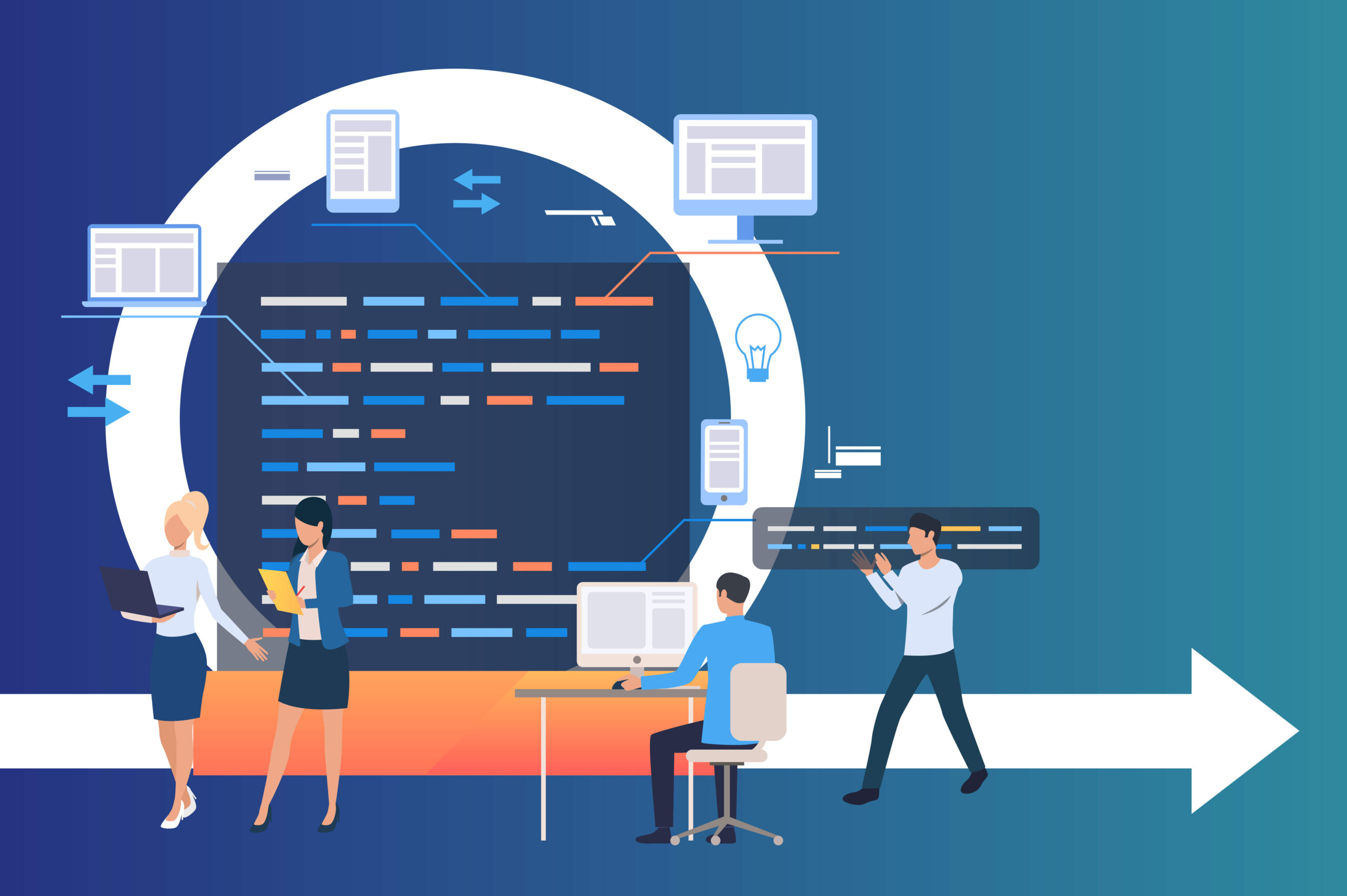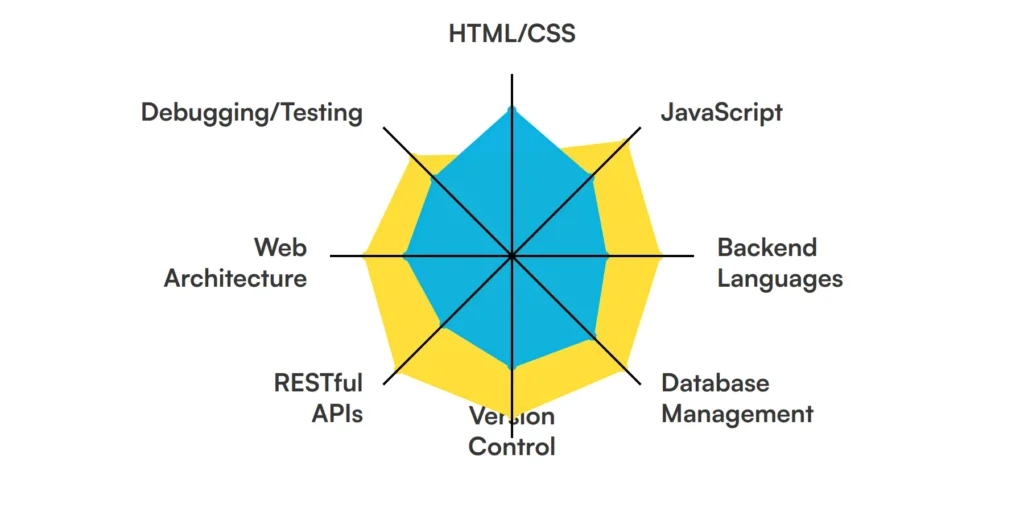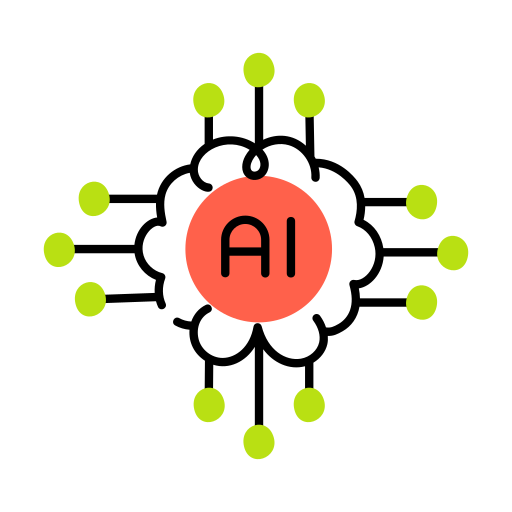Full Stack Testing Training Explained: Career Scope, Skills & Why Suresh It Academy Is the Best Place?

Imagine building a modern web application and knowing every layer works seamlessly, from the buttons a user clicks to the database behind the scenes. This’s what you get if you learn full-stack testing. TestScenario defines full-stack testing as an “end-to-end” approach that verifies software from the user interface (UI) all the way through back-end services, APIs, databases, and infrastructure. In practice, a full-stack tester checks both front-end (UI/UX) and back-end (server logic, data storage) layers together.
For students and professionals in Hyderabad which’s India’s thriving tech city, full-stack testing skills are very demanding. Hyderabad is home to Microsoft, Amazon, Google and other tech giants, and a 2025 report ranks it among Asia’s top tech talent hubs.
As development teams increasingly use Agile and DevOps, companies seek QA engineers who can handle multiplthe e roles. By investing in Full Stack Testing course offered by SURESH IT ACADEMY- best Full-Stack testing course in hyderabad, you prepare yourself for this multi-skilled QA career. In the sections below, we’ll explain full-stack testing, career prospects (jobs, salaries, growth), its benefits, required skills, and why SURESH IT ACADEMY is your best choice.
WHAT IS FULL-STACK TESTING?
Full-Stack Testing is a comprehensive QA approach covering all layers of an application. Rather than testing just the front-end or back-end in isolation, full-stack testing examines the entire flow. TestScenario explains it as a testing strategy that guarantees software functions properly “from the user interface (UI) to the back-end services, APIs, databases, and even infrastructure”. In other words, you test how user actions (buttons clicked, pages loaded) interact with the application’s logic and data behind the scenes.
Key layers in full-stack testing include:
- Front-End (UI) Testing: This verifies that buttons, forms and navigation work correctly on different browsers/devices. For example, ensure a “Login” button actually triggers the expected action and displays results properly.
- Back-End/API Testing: It helps in confirming that server logic and APIs return the right data and status codes. This means checking that business rules are enforced (e.g. a transaction only goes through if funds are sufficient).
- Database Testing: Ensure data is stored and retrieved correctly. Check database schemas, run SQL queries to validate data integrity, and test behavior under load.
- Security & Performance Testing: Scan for vulnerabilities (e.g. SQL injection, XSS) and measure how the app performs under stress. You might use tools like JMeter or OWASP ZAP here.
- CI/CD Integration: Automate and run tests continuously in the build pipeline so that every code update is immediately validated.
Unlike a fragmented testing approach (where UI, API and DB tests are done by separate teams), full-stack testing removes coverage gaps. Traditional testing often has one team test UI and another test APIs, which can miss issues at their intersection. Full-stack testing “makes the gaps go away” by validating the whole application flow. This end-to-end view is especially vital for today’s distributed, cloud-based systems, ensuring that all components work together seamlessly.

CAREER SCOPE OF FULL-STACK TESTING-JOBS, SALARIES AND FUTURE GROWTH
A career in full-stack testing offers versatile job roles and competitive pay. In India, software testers (including full-stack testers) enjoy healthy salaries and upward mobility. For example, GeeksforGeeks reports that freshers in software testing earn ₹3–6.5 LPA on average. With 3–5 years of experience, testers can expect ₹7.5–12 LPA or more. Full-stack testers often earn at the higher end, since they cover multiple skill sets. Global training providers note that full-stack testers command “higher salaries due to multi-skill capabilities”. In other words, being able to test across UI, API, database, and more makes you more valuable.
Job titles in this field include Full Stack QA Engineer, SDET (Software Development Engineer in Test), QA Analyst, or Test Lead. As you gain experience, paths open to senior roles like QA Architect or Manager. This growth is driven by complex applications (microservices, AI, IoT) that need end-to-end QA. Hyderabad’s booming IT sector contributes to this demand with over 900,000 IT/ITES professionals in the city, tech companies there regularly hire QA talent. Overall, full-stack testing offers job security and growth with careers spanning many industries (finance, healthcare, e-commerce) and can lead to leadership roles as QA evolves.
BENEFITS OF FULL-STACK TESTING-
Full-stack testing holds some major benefits over more focused approaches. Top QA gurus point to advantages including improved software quality, more rapid releases, and more effective collaboration. As an example, TestDevLab points out that full-stack testing “tests [software] entirely through, lowering the risk of defects and enhancing overall quality” by addressing every layer. Some significant benefits include:
- Greater Software Quality: Since you’re testing the UI, APIs, database, and integrations all together, fewer bugs make it through to production. Only problems that occur when layers interact (which may otherwise be overlooked) are caught early, which means a more stable, reliable product.
- Early Defect Detection: Full-stack testing utilizes a shift-left strategy that is defined as testing earlier and repeatedly. This implies defects are detected in development instead of release time. Fixes earlier cost less; a study observes that discovering bugs early “cuts the cost and effort needed to repair them later”
- Less Testing Time: By catching problems early, teams do less late-stage rework. The test cycle can be shorter in total, accelerating delivery. For instance, teams can automate important end-to-end tests and prevent repeated manual retesting of the same features.
- Greater Efficiency: Automating full-stack tests and incorporating them into CI/CD pipelines leaves QA teams free from the drudgery of manual checks. According to TestDevLab, this efficiency is what allows teams to work on more important tasks. Automated tests execute with each code change consistently, giving immediate feedback.
- Enhanced Collaboration: Full-stack testing promotes cross-team interaction. Developers, QA engineers, and DevOps engineers collaborate to design and execute comprehensive tests. Consequently, there is less confusion and quicker bug fix. Teams get closer, as everybody has a stake in product quality.
In summary, embracing a full-stack testing approach results in improved products released quicker. Through testing the entire application flow, your organization can deliver software with confidence which’s a huge victory in today’s rapid development cycles.
WHAT SKILLS ARE REQUIRED IN FULL-STACK TESTING?
As a full-stack tester, you get to wear lots of hats, so you must have a wide range of skills. Generally speaking, technical skills encompass both programming and testing software, whereas soft skills entail analysis and communication. Core skills are:
1. Programming & Automation: It is necessary to have at least one programming language (Java, Python, or JavaScript being popular) to code automated tests. It is necessary to be familiar with automation frameworks such as Selenium, Cypress, or Playwright. TestDevLab informs that full-stack testers need “programming [and] test automation” skills.
2. UI and Front-End Testing: Knowing the basics of HTML, CSS, and JavaScript assists you in testing how the user interface acts. You’ll employ software (e.g. Selenium WebDriver) to mimic user interactions such as clicks and entries into forms.
3. API & Back-End Testing: You should be able to work with API testing tools (e.g., Postman, REST Assured or SoapUI) to test server responses and business logic. Understanding how RESTful APIs operate is very important. TestRigor identifies that full-stack testers perform “UI, API, database, security, and performance” testing.
4. Database skills: Basic SQL is required. You will code database queries to ensure data is stored, updated, and deleted correctly. This will help the back-end modifications reflect properly.
5. Security and Performance Testing: Familiarity with known security vulnerabilities (such as SQL injection or XSS) and related detection tools (e.g. OWASP ZAP) is worthwhile. Plus, experience with performance/load testing (using JMeter or equivalent) allows you to make the app perform well under load.
6. CI/CD & DevOps Tools: Full-stack testers today frequently require knowledge of DevOps. You must be aware of how to make tests a part of continuous integration pipelines (with tools such as Jenkins, GitLab CI, or GitHub Actions) and how containerization (say, Docker) functions.
7. Soft Skills: Solid problem-solving and analytical skills are essential – you need to debug multi-layered issues. Being able to communicate well and work in teams is also essential, as you’ll be liaising with stakeholders and developers during testing.

FULL STACK TESTING VS MANUAL TESTING VS AUTOMATION-WHICH SHOULD YOU CHOOSE?
| Aspect | Full-Stack Testing | Manual Testing | Automation Testing |
| Scope | End-to-end testing across UI, back-end, APIs, databases, CI/CD, security, and performance | Testing only specific features or modules manually, usually UI-focused | Automates repetitive test cases, mostly for regression or high-volume tests |
| Skills Required | Programming (Java, Python, JavaScript), UI & API testing, DB testing, CI/CD, DevOps basics, security & performance testing | Understanding of software workflows, attention to detail, test case creation | Programming knowledge, automation frameworks (Selenium, Cypress, Playwright), scripting |
| Efficiency | High. It catches integration issues across layers, reduces gaps | Low, Because it’s time-consuming and prone to human error | Medium to high- Because of fast execution of repetitive tests but limited to automated scope |
| Error Detection | Comprehensive. Detects UI, back-end, and integration issues | Limited. May miss inter-layer or API issues | Good for regression & repetitive test coverage, but may miss new issues |
| Career Prospects | High. Multi-skilled testers are in demand, higher pay, versatile roles | Entry-level. Good starting point, but slower growth | High . Specialized in automation, can complement full-stack skills |
| Tools Used | Selenium, Postman, JMeter, OWASP ZAP, Jenkins, GitHub Actions, SQL | Excel, Jira, TestRail, manual scripts | Selenium, Cypress, Playwright, Appium, CI/CD tools |
WHY HYDERABAD IS THE BEST IT TRAINING & JOB DESTINATION?
Hyderabad has transformed into one of India’s top technology hubs at a rapid pace. The city’s huge tech parks such as HITEC City and Gachibowli house the biggest campuses of Microsoft, Amazon, and Google outside the US. With this aggregation of big tech and numerous startups comes a persistent demand for skilled IT talent. A recent research even lists Hyderabad as one of the leading Asia-Pacific cities with tech talent, and it scored well in terms of workforce quality and availability. In numbers, over 905,000 IT/ITES professionals were working in Hyderabad in 2023.
For students, Hyderabad’s environment is perfect. The city is a large exporter of software (Telangana state accounts for 31% of India’s IT exports and has plenty of engineering universities and training facilities. Students enjoy the presence of a thriving developer ecosystem, regular tech events, and hackathons. Plenty of IT training facilities (for instance, QA Training Hub, QuickXpertInfotech, and Naresh i Technologies) operate here. Most importantly, employers in Hyderabad are actively hiring QA and testing professionals to back their products. It all adds up: high-quality training and a whole lot of entry-level and senior QA positions make Hyderabad an ideal location to start a full-stack test career.
WHY CHOOSE FULL-STACK TESTING TRAINING?
Full-Stack Testing training is a wise career move for a QA. With the Agile/DevOps era of today, businesses want testers who can do it all- every layer of the application. Indeed, industry trainers observe a high-demand trend: employers want testers who know the whole tech stack, not siloed experts. By taking full-stack testing training, you develop a versatile skill set (manual + automation + backend knowledge) that makes you an indispensable team member.
This flexibility is worth it. Consequently, full-stack testers tend to get more pay and wider career prospects. They can switch between functions (manual tester, automation engineer, SDET, etc.) and sectors (finance, e-commerce, healthcare, etc.) easily. SURESH IT ACADEMY training programs encompass all the tools applicable in this field starting from Selenium and JMeter to Postman and Jenkins and make you a one-stop QA specialist. Briefly put, full-stack testing training not only enhances your technical skill set but also enhances your career opportunities in a booming QA industry.
TOP IT TRAINING INSTITUTES IN HYDERABAD FOR TESTING- WHY WE STAND OUT?
Hyderabad offers many IT training institutes known for software testing courses. For example, Naresh i Technologies is well-known for full-stack QA programs, and QuickXpert Infotech even promises placement support for its full-stack testing course. There are also specialized academies like QA Testing Hub and various university-run training centers. However, SURESH IT ACADEMY stands out among these for its hands-on, industry-aligned approach.
Suresh IT’s Full-Stack Testing course curriculum explicitly covers the full range of skills needed. According to their syllabus, students gain proficiency in automated testing tools, front-end and back-end testing, database testing, performance/load testing, and CI/CD integration. In other words, the course ensures you can identify and fix issues across the entire technology stack. The institute also emphasizes real-world projects and small batches so you get practical experience. Importantly, Suresh IT provides placement assistance to help students land in their dream role. With its blend of comprehensive coursework and expert guidance we often are rated among the top choices in Hyderabad for aspiring QA professionals.
FAQ’s-
1. How long is the Full Stack Testing course?
-The course duration usually is 3 months. It’s a fast-paced program designed to cover both manual and automation testing.
2. Who can enroll?
-Anyone with a computer background. Fresh graduates, career changers, and other IT professionals can enroll.
3. Are classes online?
-Suresh IT Academy offers offline and online both.
4. Do they offer placement help?
-Yes, Suresh IT Academy provides job placement assistance along with training.
CONCLUSION-
Full-stack testing is a powerful approach to ensuring software quality in today’s complex applications. As companies move to Agile and DevOps, the demand for multi-skilled QA professionals is rising sharply. In Hyderabad’s bustling IT landscape, now is a great time to build these skills.
Therefore by enrolling in a dedicated full-stack testing course at SURESH IT ACADEM- testing course near me you get in depth knowledge along with hands-on experience and placement assistance from industry experts. We also specialize in other IT courses such as Full-Stack Testing with Gen AI, Selenium Testing with AI, Salesforce with CRM and many more. Join us today.














